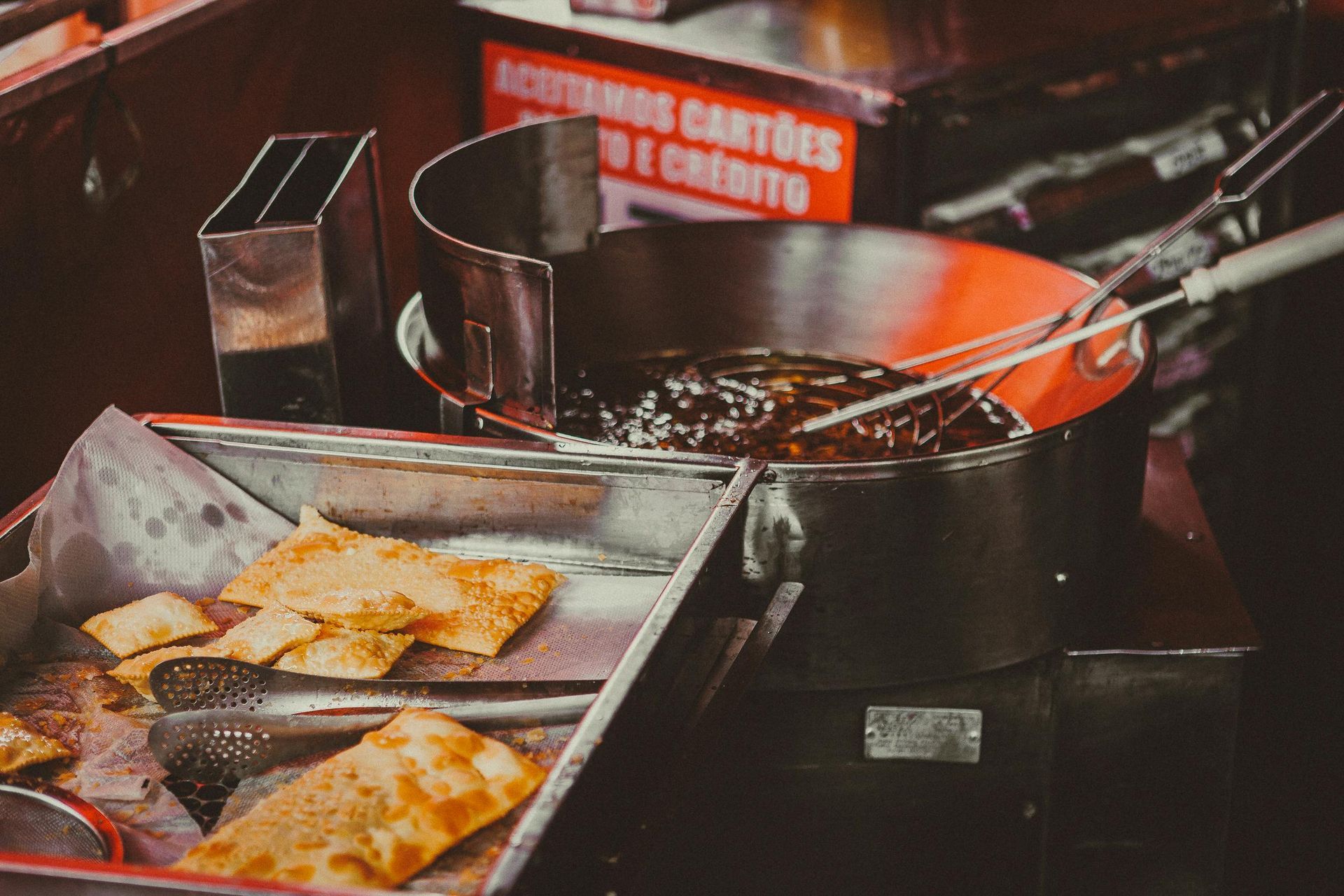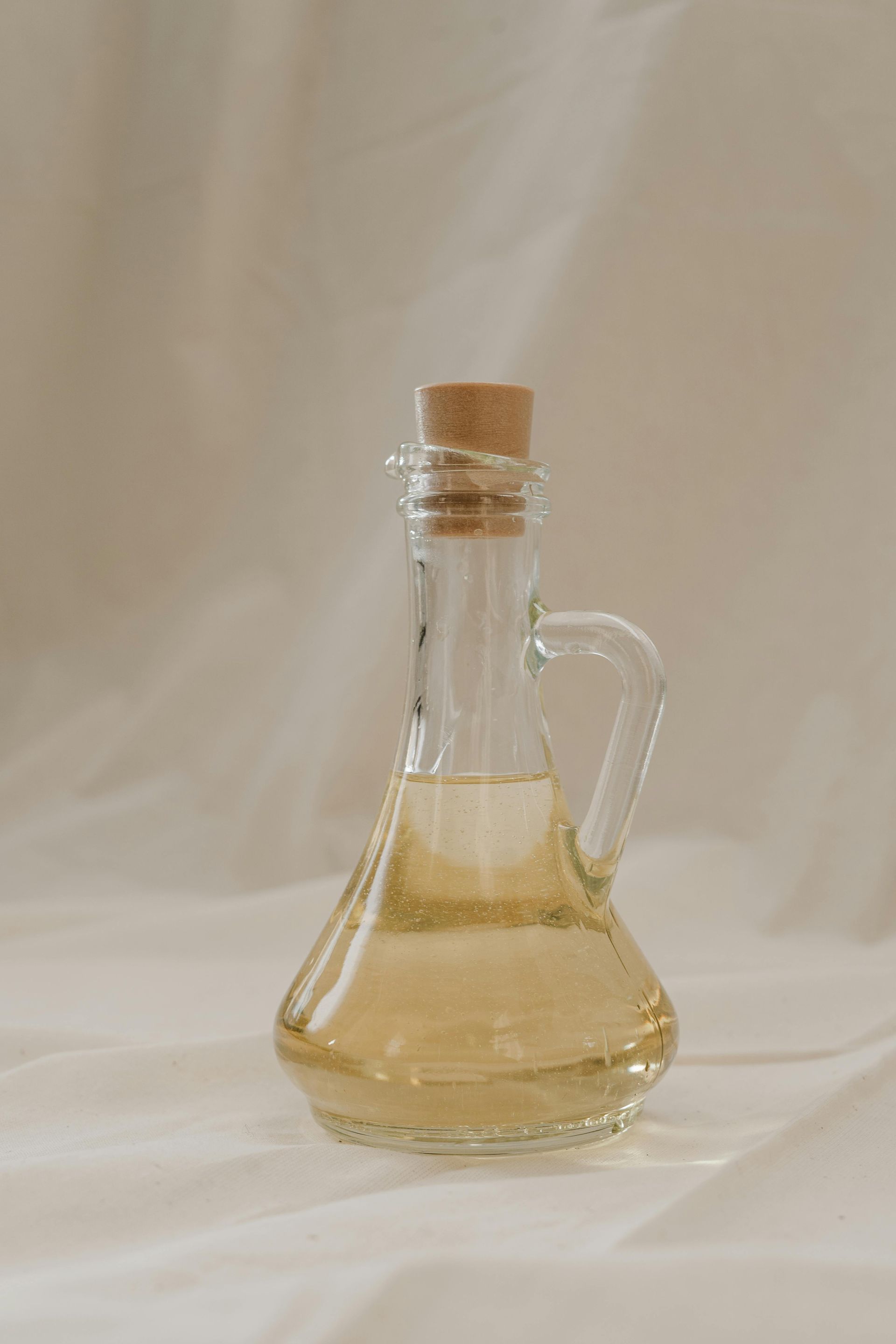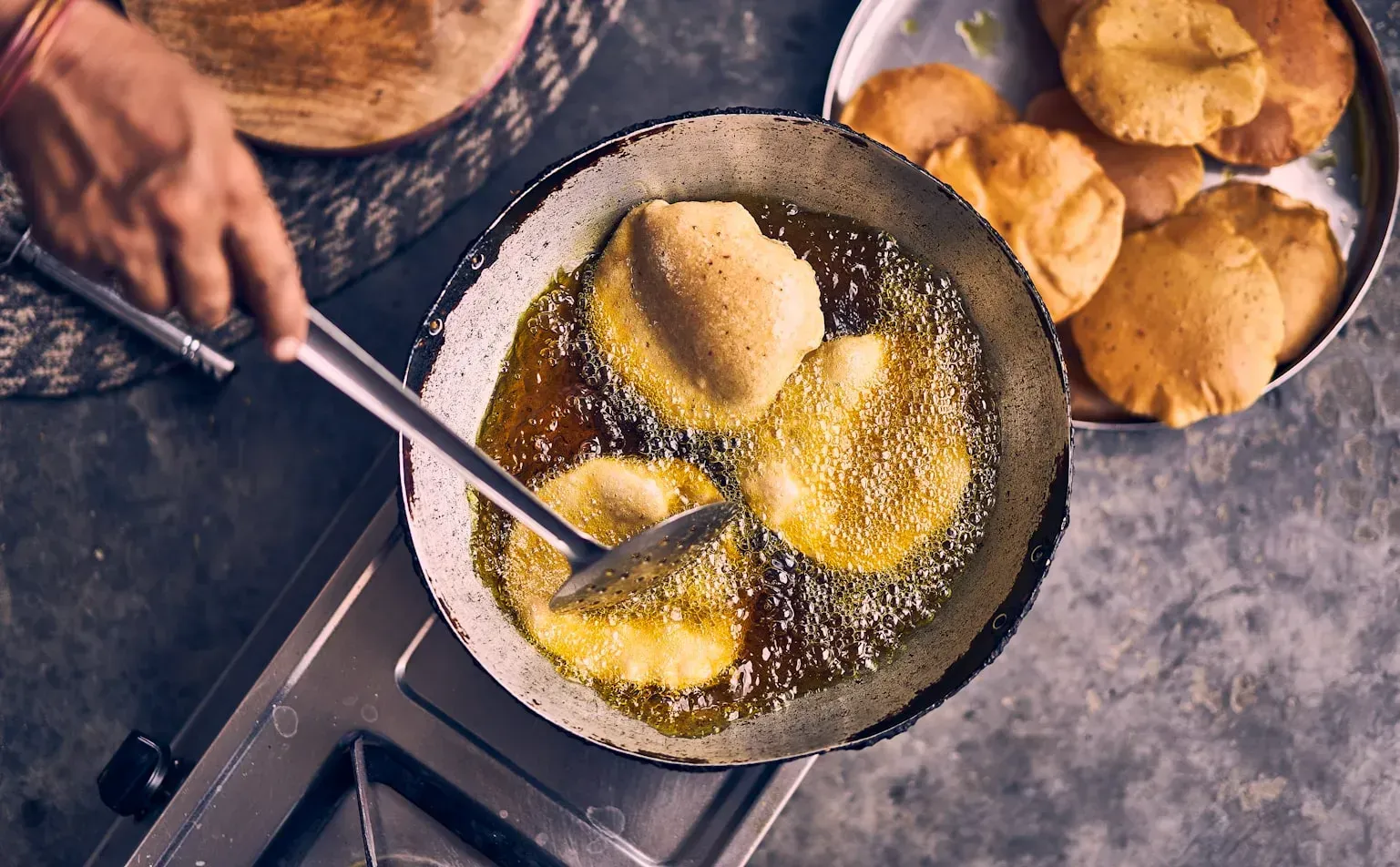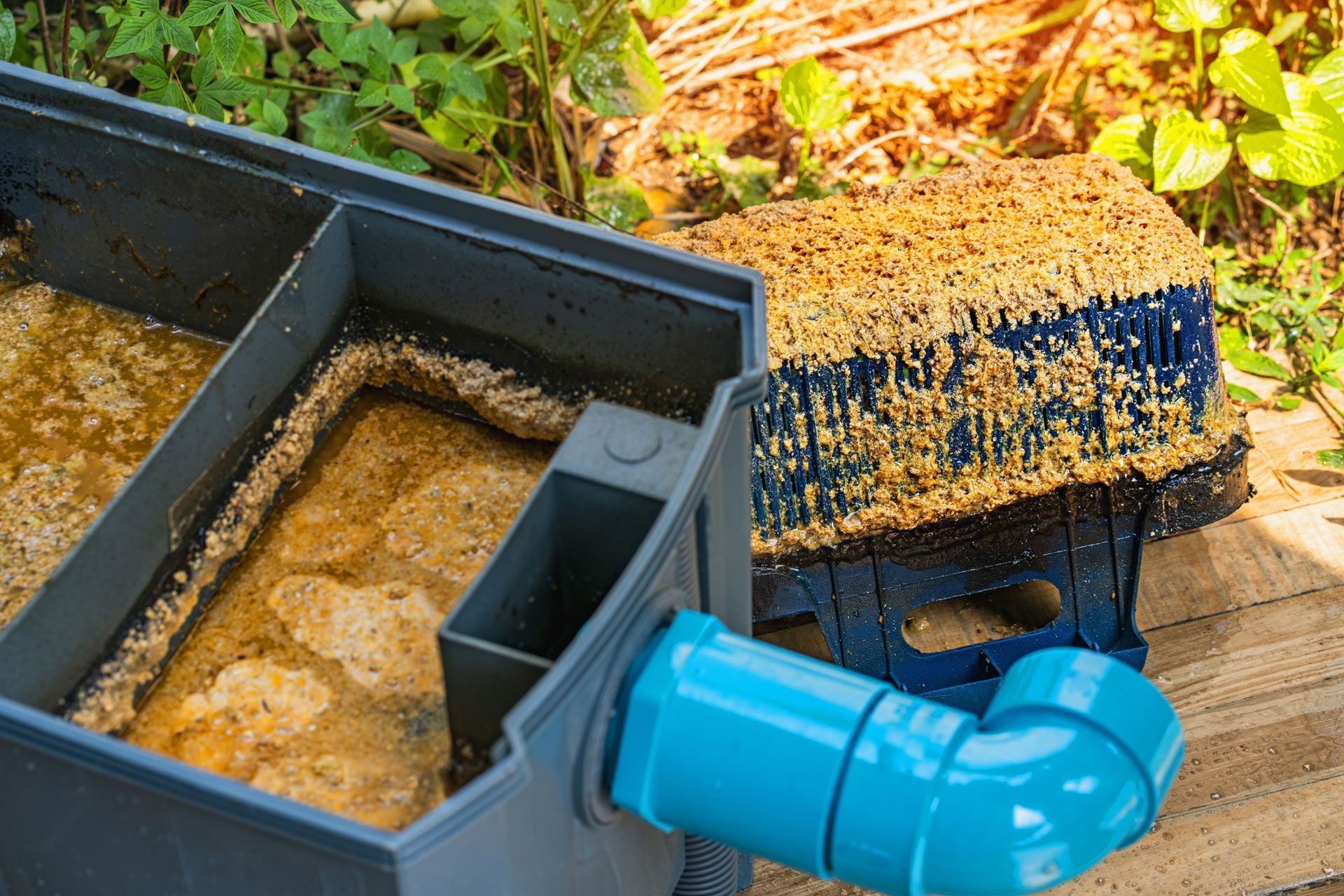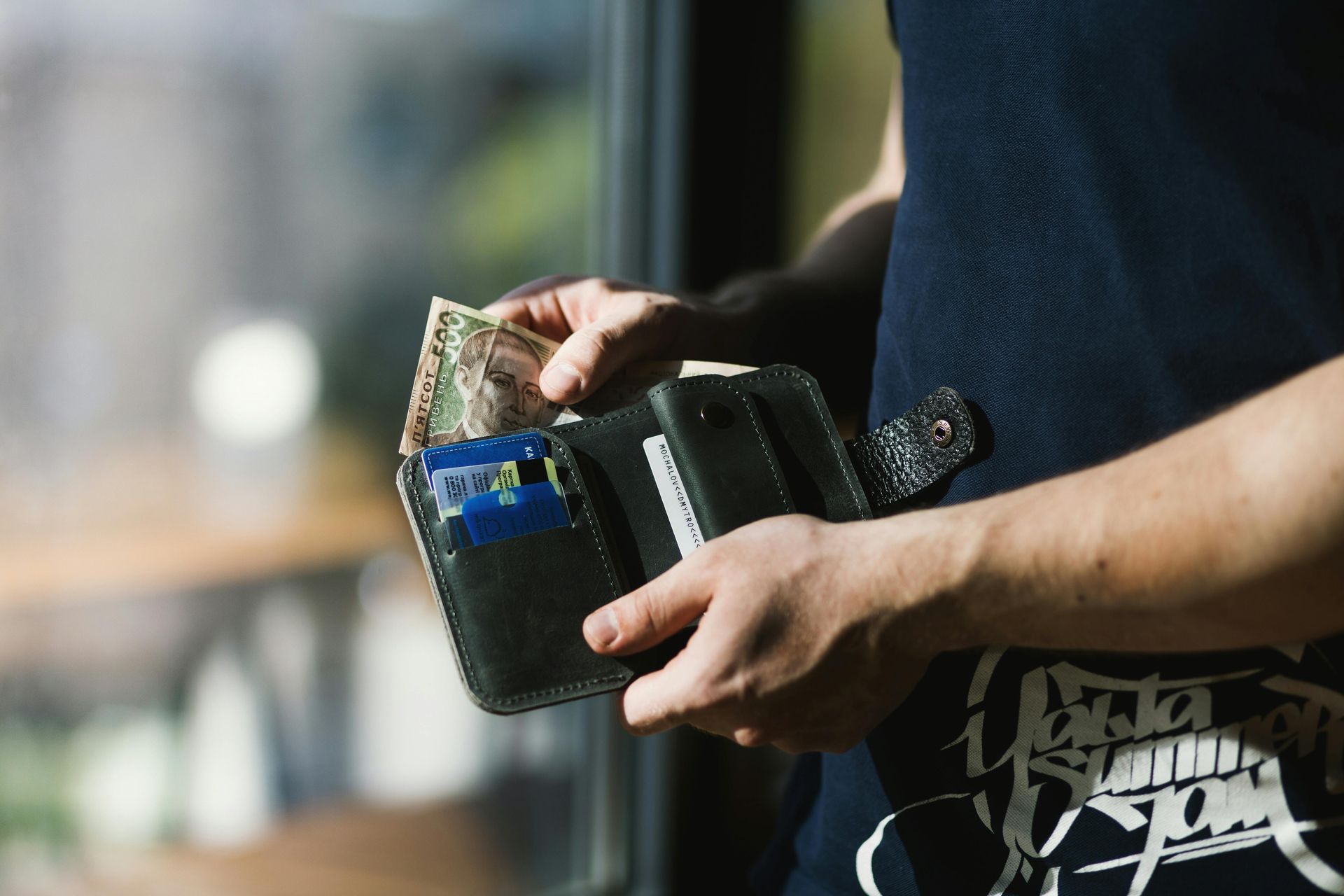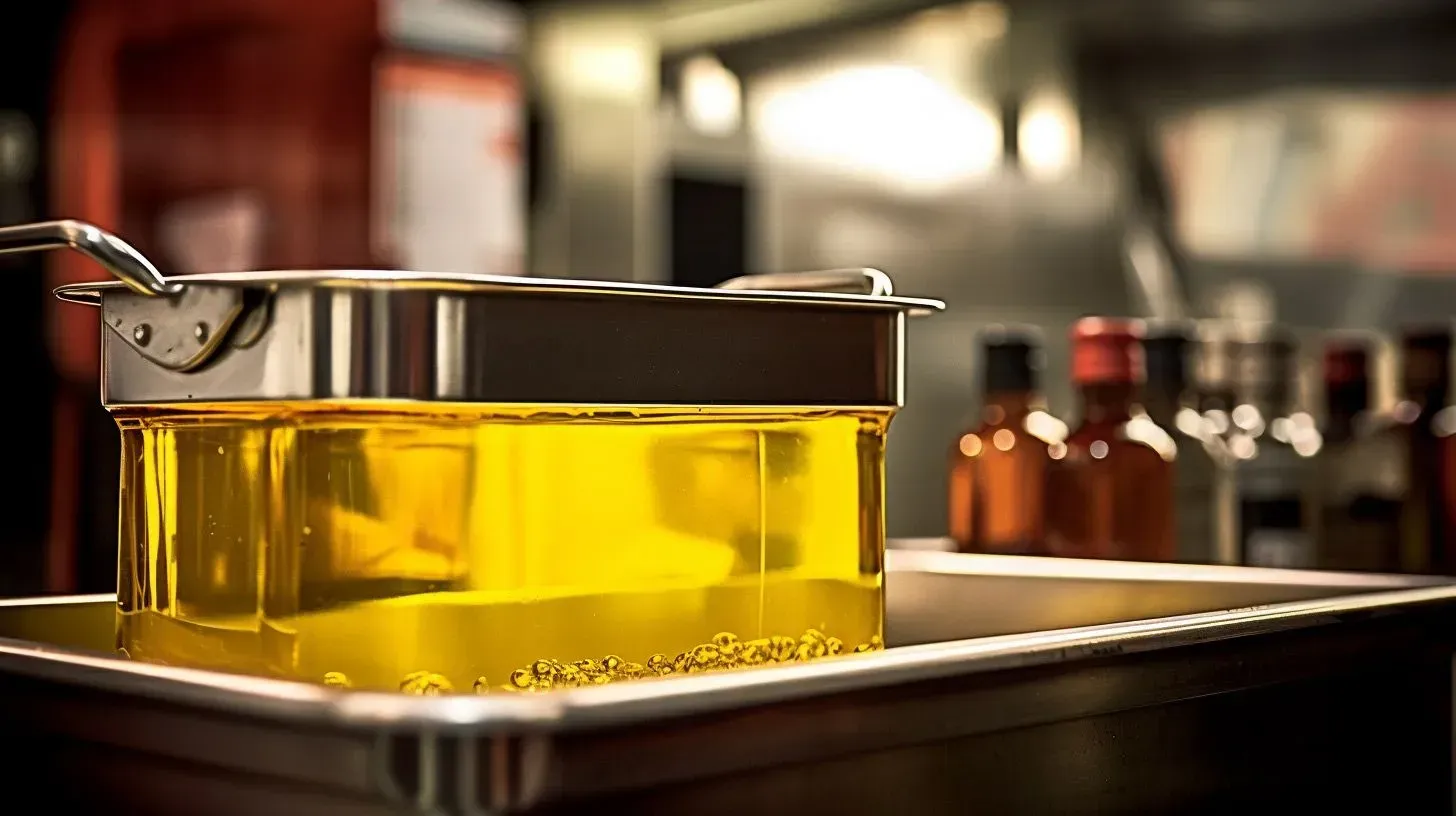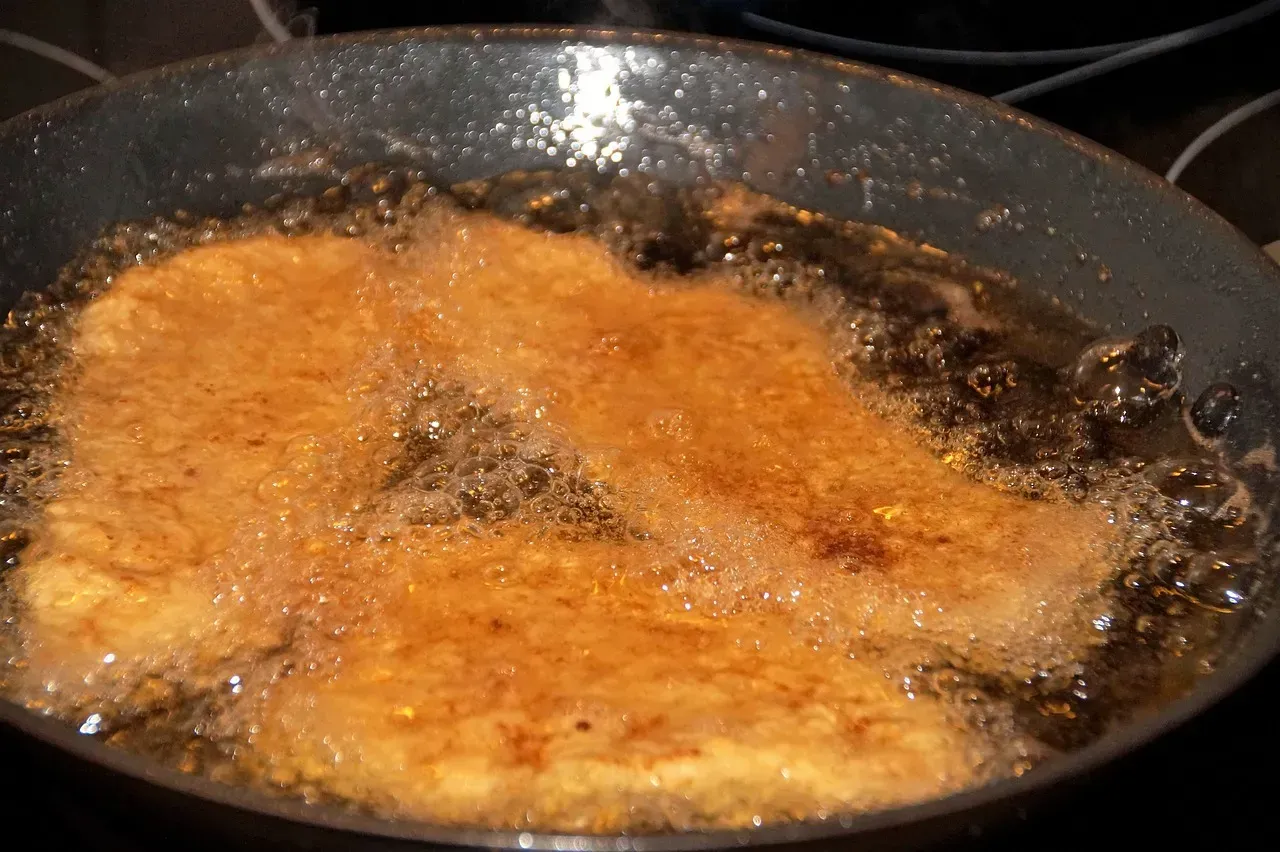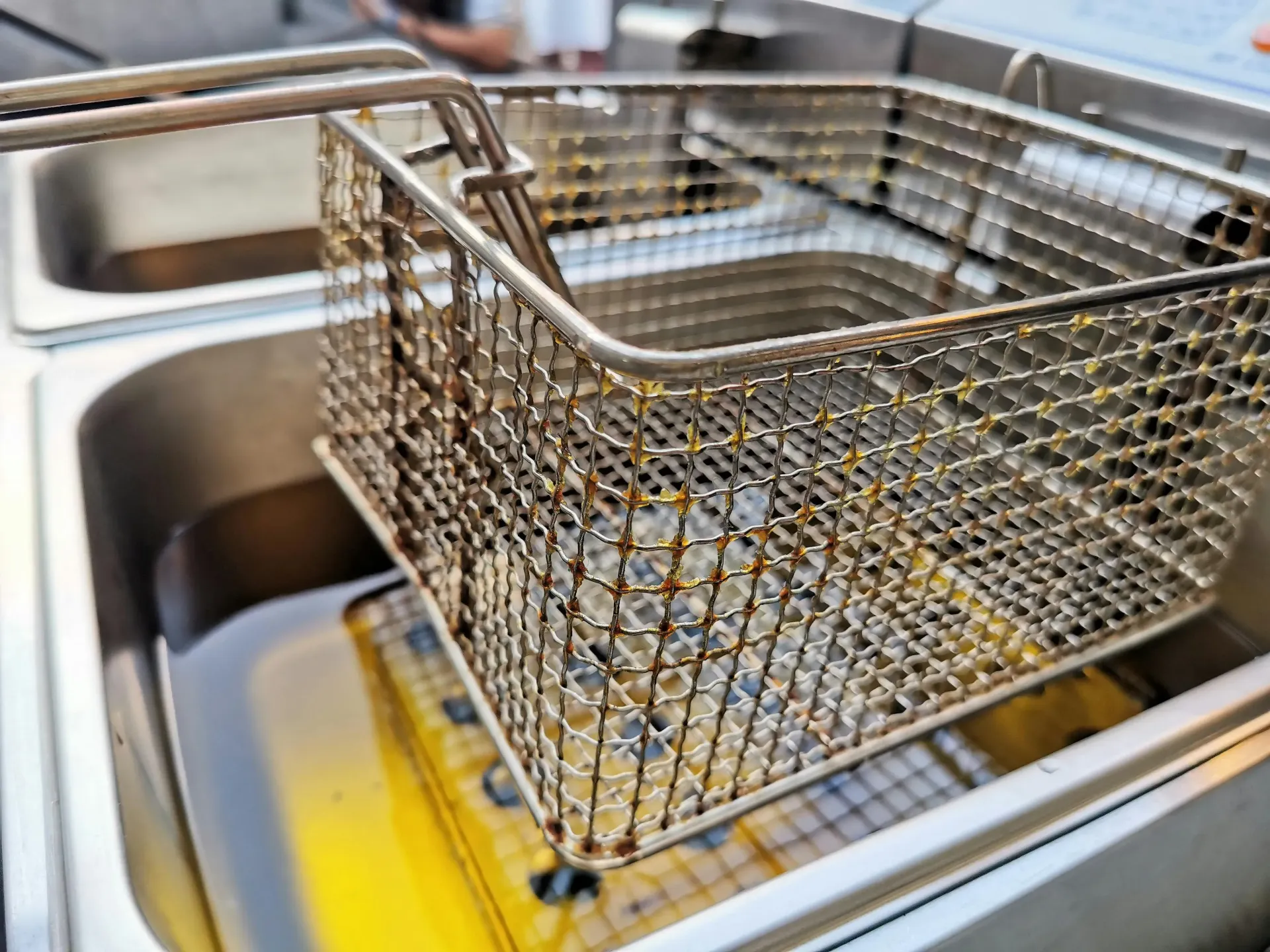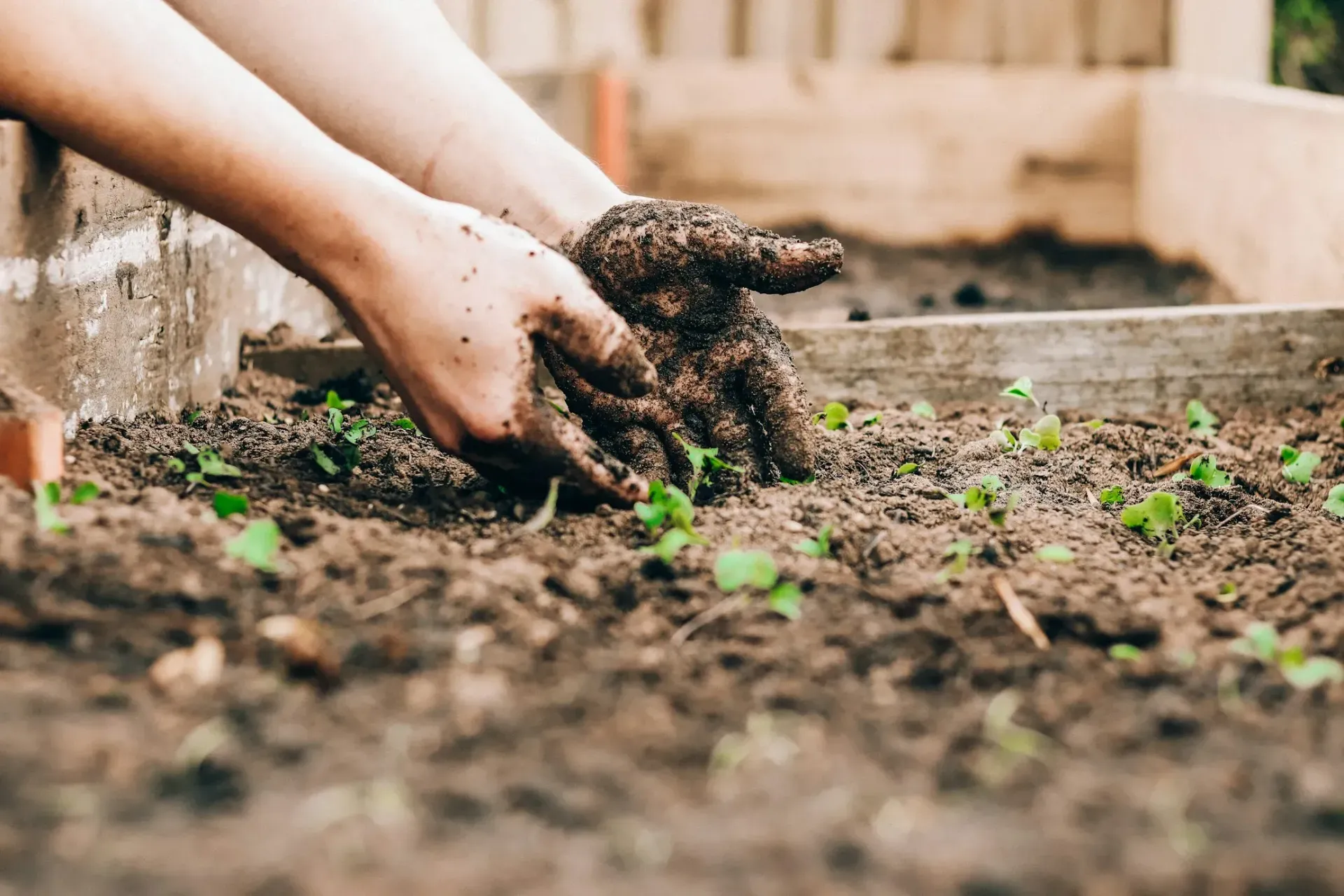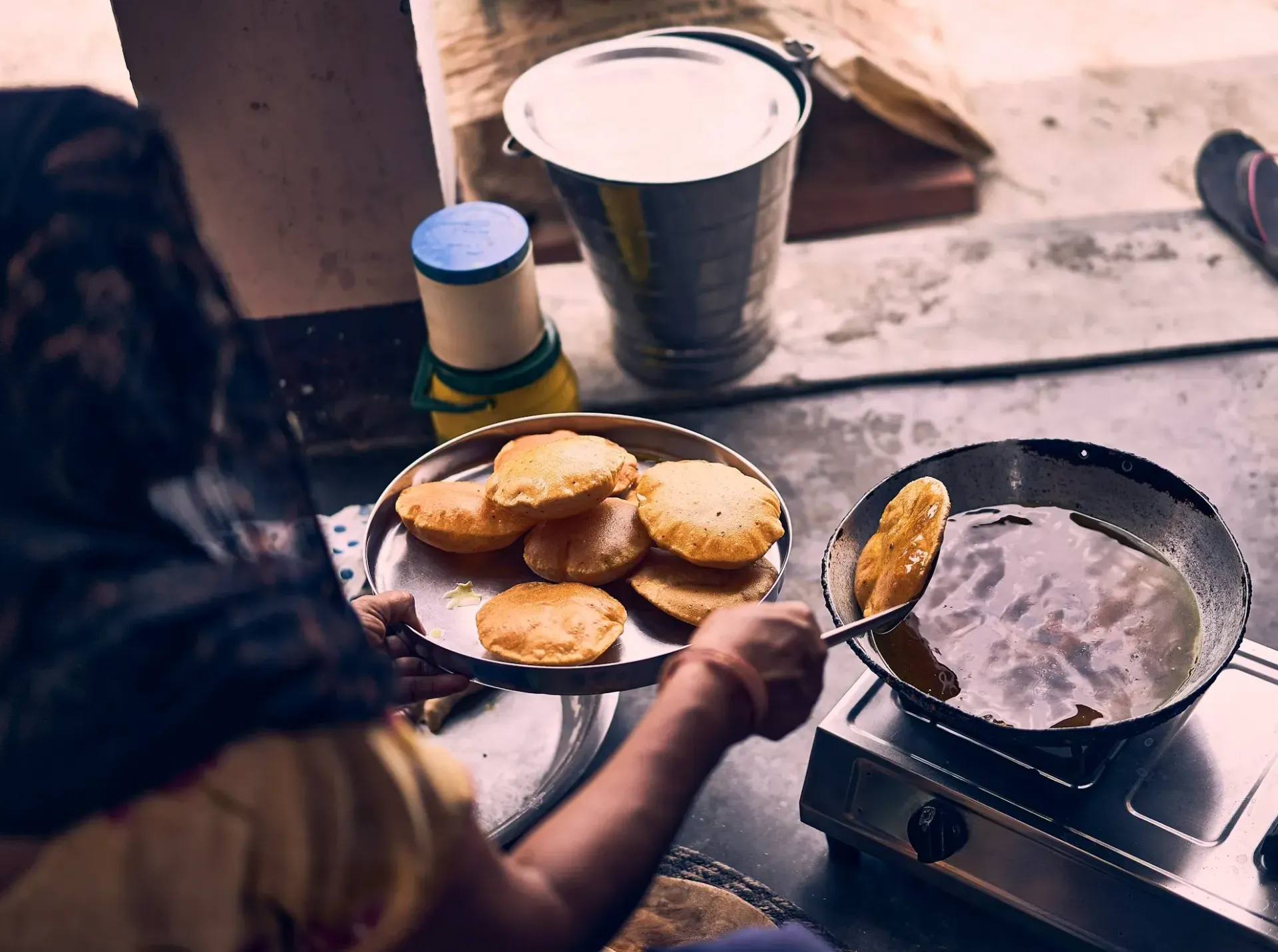Call Us Today!
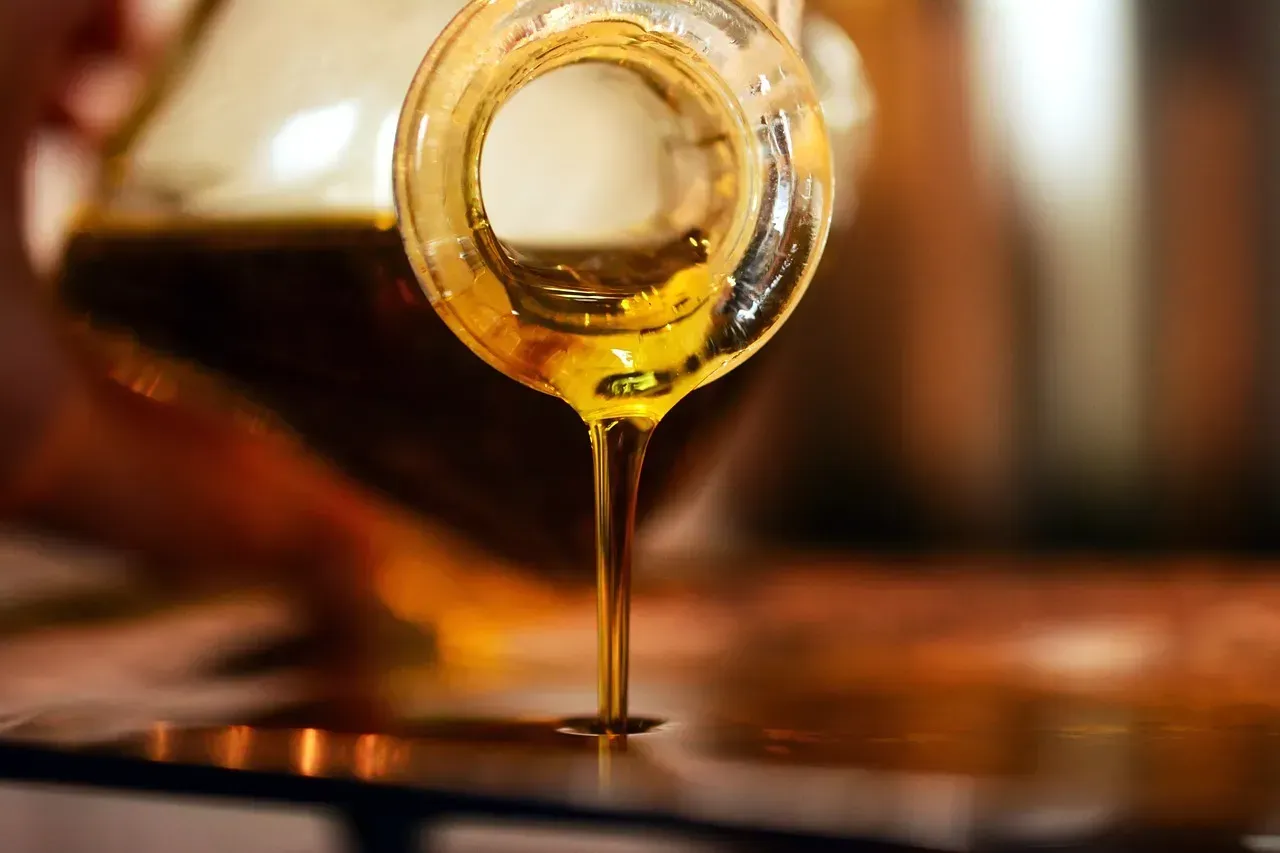
How to Properly Dispose of Used Cooking Oil: A Safe and Responsible Guide
Disposing of used cooking oil isn’t as simple as dumping it down the drain. If you do it the wrong way, it can damage your pipes and hurt the environment. Whether you’re cooking for yourself or a crowd, you need to handle used oil properly. In this guide, we’ll show you the best ways to dispose of it safely—whether that’s containing, recycling, or even finding new uses for it.
What Are the Best Ways to Dispose of Cooking Oil?
Getting rid of cooking oil safely requires some simple steps, but it's important to know the best options to avoid damage or pollution. Here are some top methods for disposing of used cooking oil:
Why You Shouldn’t Pour Oil Down the Drain?
Pouring oil down the drain is a common mistake. It might seem convenient, but it causes major plumbing issues. Oil solidifies when it cools, sticking to pipes and causing clogs. Over time, these clogs can build up and block your pipes entirely, leading to costly repairs.
Plus, oil that goes down the drain doesn’t just stay in your plumbing. It eventually reaches water systems, where it can harm wildlife and contribute to pollution. So, avoid dumping oil down the drain—it’s a bad idea for both your home and the environment.
Methods to Contain the Oil for Disposal?
Once the oil cools, you need to contain it properly before disposing of it. One simple way is to pour the oil into a sealable container. You can use old jars, cans, or any container with a lid. Make sure the container is sturdy and won’t leak.
After you’ve sealed the container, you can throw it in the trash. Most waste management systems can handle small amounts of cooking oil as long as it’s contained. Just avoid mixing it with regular recyclables, as oil can contaminate other materials.
How to Use Disposable Containers Effectively?
Using disposable containers is another easy method for getting rid of cooking oil. Instead of keeping used jars or cans, you can opt for containers that are meant for one-time use. Many people use empty milk cartons or disposable plastic containers.
The key is to let the oil cool down first. Hot oil can melt plastic or cause containers to warp. Once the oil is cooled and safely poured into the disposable container, seal it tightly and toss it in the trash. This keeps the oil from spilling and prevents any mess.
Can You Recycle Cooking Oil?
Yes, you can recycle cooking oil, and it’s a great way to reduce waste. Instead of tossing it out, you can give used oil a new life through recycling programs. Many areas offer services that collect used cooking oil for recycling, transforming it into useful products like biodiesel or even animal feed.
Understanding Oil Recycling Options
Many recycling centers and services accept used cooking oil. Some local municipalities offer drop-off points where you can bring your cooled, contained oil. Check with your local waste disposal service or recycling center to see if they have a collection program.
Some businesses, like restaurants or commercial kitchens, also partner with oil recycling companies. If you cook large amounts of food at home, you might be able to take advantage of these services. They often turn the oil into biodiesel, which is a cleaner fuel alternative, or use it in other industrial processes.
Steps to Reuse Used Cooking Oil Safely
If the oil is still in decent shape, you can reuse it for cooking. First, strain the oil through a fine mesh or cheesecloth to remove any food particles. Once the oil is clean, store it in an airtight container in a cool, dark place to keep it from spoiling.
You can typically reuse oil a few times, depending on what you cooked. Just make sure it doesn’t smell rancid or have a strange texture before using it again. Always use fresh oil for more delicate dishes, like baking or sautéing, and save reused oil for frying or grilling.
Converting Used Oil into Biodiesel Fuel
Used cooking oil can be turned into biodiesel, a renewable fuel that’s better for the environment than traditional petroleum-based fuels. While this process is typically done by specialized companies, some individuals have home biodiesel kits that allow them to recycle their own oil.
If you're interested in this option, look for local biodiesel producers or recycling services that accept used cooking oil. They process the oil into fuel, which can power diesel engines with fewer emissions. It's a great way to reduce waste and contribute to cleaner energy solutions.
How to Safely Dispose of Cooking Oil at Home
Disposing of cooking oil at home doesn’t have to be complicated. You just need to follow a few easy steps to ensure it’s done safely. Whether you’re tossing it, recycling it, or finding a creative reuse, making sure you dispose of oil properly helps protect your plumbing and the environment.
Preparing Cooled Oil for Disposal
Before you dispose of cooking oil, always let it cool down completely. Hot oil can cause burns and even damage containers, so it’s crucial to wait. Once the oil has cooled, pour it into a container with a lid, like an old jar or an empty bottle. Make sure the container is sealed tightly to prevent leaks.
If you’re planning to throw it away, place the sealed container in the trash. Don’t dump it directly into the trash can, as loose oil can cause a mess and attract pests. Properly containing the oil keeps things clean and safe.
Using a Grease Disposal System
A grease disposal system is another handy option for managing used cooking oil at home. These systems often come with a disposable container and absorbent materials inside that soak up the oil. You simply pour the cooled oil into the container, let it absorb, and then toss the entire thing in the trash.
These systems are a great way to avoid spills and make the whole process easier, especially if you fry food often. They’re affordable and available at most grocery or home goods stores.
Alternatives to Cooking Oil Down the Drain
If you don’t have a grease disposal system or don’t want to use disposable containers, there are other ways to handle used cooking oil. You can mix small amounts of oil with absorbent materials like cat litter, coffee grounds, or paper towels before throwing it in the trash. These materials help soak up the oil, making it easier to dispose of without the risk of leaking.
Another option is to reuse oil for things like greasing pans or as a lubricant for tools, hinges, or other household items. Just make sure the oil is clean and cooled before repurposing it.
What Happens If You Pour Oil Down the Drain?
Pouring oil down the drain can lead to serious problems, both for your plumbing and the environment. Even if the oil is liquid when it goes down, it will eventually cool and solidify, creating blockages that are difficult and expensive to fix.
Impact on Plumbing and Pipes
When you pour oil down the drain, it might seem harmless at first, but it can solidify as it cools. This leads to buildup inside your pipes, gradually narrowing them and causing clogs. Over time, the blockage can get severe enough to back up your entire plumbing system.
Fixing these issues often requires professional help, which can be costly. In extreme cases, you might even need to replace sections of your plumbing. So, it’s best to keep oil out of your drains to avoid these problems.
Environmental Consequences of Improper Disposal
When cooking oil goes down the drain, it doesn’t just stop at your pipes. It can make its way into local water systems and cause significant environmental damage. Oil can coat water surfaces, disrupting ecosystems and harming wildlife. Aquatic animals and birds are particularly vulnerable since oil can prevent them from getting the oxygen they need.
Additionally, wastewater treatment plants struggle to remove oil from water, leading to long-term contamination. Improper disposal of cooking oil contributes to pollution, so it’s crucial to dispose of it responsibly.
How Grease Can Cause Blockages?
When grease cools and solidifies in your pipes, it doesn't just sit there—it grabs onto anything else that goes down the drain. Food particles, hair, and other debris stick to the greasy buildup, creating thick blockages over time. These blockages don’t just slow down your drainage; they can eventually cause a complete pipe blockage, leading to water backup and expensive repairs.
This is why pouring grease down the drain is one of the worst things you can do for your plumbing. It’s better to contain and dispose of it properly from the start.
Are There Creative Ways to Reuse or Recycle Cooking Oil?
Yes, there are several creative ways to reuse or recycle cooking oil instead of just throwing it away. By repurposing your used oil, you can cut down on waste and find some surprisingly useful applications for it around the house.
Turning Used Oil into Soap
You can transform used cooking oil into homemade soap. This method has been around for centuries and is a great way to repurpose oil. The process involves mixing the used oil with lye and water to create soap bars. It’s a fun DIY project, and you’ll end up with a practical product that’s both environmentally friendly and cost-effective.
Just be sure to research the proper steps and safety precautions when working with lye, as it can be dangerous if handled incorrectly.
Using Oil and Grease in Compost
Another creative way to reuse small amounts of cooking oil is by adding it to your compost. Used vegetable oils, in particular, can provide beneficial nutrients for your compost pile. However, it’s important to only use a small amount, as too much oil can attract pests or create an imbalance in the composting process.
Make sure the oil is plant-based and that you mix it well with the compost materials. This way, you’re not only reducing waste but also giving back to your garden in a natural way.
Crafting Homemade Candles from Vegetable Oil
You can turn used cooking oil into homemade candles. This is an easy and creative way to recycle oil, especially vegetable oil. To make a candle, simply combine the used oil with a cotton wick and place it in a container like a jar or small bowl. The oil acts as the fuel, and once lit, the wick burns steadily.
This DIY candle project not only helps reduce waste but also creates a useful and eco-friendly item for your home. Just make sure the oil is strained to remove any food particles before use.
Conclusion
Properly disposing of used cooking oil is crucial for protecting your home, plumbing, and the environment. Whether you’re containing it for trash, recycling it, or exploring creative ways to reuse it, the key is to avoid pouring it down the drain. From recycling programs that turn oil into biodiesel to DIY projects like making soap or candles, there are many options available to handle used oil responsibly. By following these steps, you’ll prevent clogs, reduce pollution, and contribute to a cleaner environment.
If you’re looking for a reliable solution to dispose of cooking oil or need professional grease trap services, trust Grease Guys. Serving Washington, Spokane, and Sand Pointe, they offer expert grease trap cleaning, cooking oil collection, and grease trap pumping.
Keep your kitchen running smoothly and your disposal worries at bay by contacting Grease Guys today!
FAQs
What is the best method for cooking oil disposal to avoid clogs?
The best method for cooking oil disposal is to store used oil in a sealed container and take it to recycling centers. This prevents the oil from being poured down the drain, which can clog pipes and cause other plumbing issues.
Can I throw small amounts of used cooking oil in the garbage?
While tossing small amounts of used cooking oil in the garbage is possible, it's important to ensure it is in a sealed container to prevent leaks and attract pests. It's better to solidify the oil before disposal.
How can I solidify cooking oil for safe disposal?
You can solidify cooking oil by freezing it or mixing it with absorbent materials like paper towels or biodegradable substances. Once solidified, it can be safely thrown in the garbage.
Is it safe to pour used cooking oil down the toilet?
No, pouring used cooking oil down the toilet is not safe as it can lead to clogs in your home's plumbing and damage sewage systems.
How should I store used cooking oil before disposal?
Store used cooking oil in an airtight container and keep it in the fridge or freezer to prevent it from becoming rancid or potentially leaking before you properly dispose of it.
Why shouldn't I dump used cooking oil down the drain?
Dumping used cooking oil down the drain can lead to clogs in the pipes and create fog (fats, oils, and grease) that can cause significant plumbing and sewage problems.
How can I reuse leftover oil from frying?
To reuse leftover oil from frying, strain out any food particles and store the oil in a clean, airtight container. Keep it in a cool, dark place or the fridge to prevent deterioration.
What are the environmental impacts of improper cooking oil disposal?
Improper cooking oil disposal can lead to clogged sewage systems, polluted waterways, and attract pests like insects and critters, causing significant environmental harm.
Can I recycle cooking oil from takeaways?
Yes, you can recycle cooking oil from takeaways by collecting it in a sealed container and taking it to designated recycling centers that accept waste cooking oil.
How can I prevent oil from attracting pests when disposing of it?
Ensure used oil is stored in a sealed container and solidified before placing it in the garbage to prevent it from attracting pests and critters.
Send us a Message
We will get back to you as soon as possible
Please try again later
OUR SERVICES
TIPS & ARTICLE
GET IN TOUCH
Phone: (855) 227-6060
Email: info@greaseguys.com
Address: 3188 Road M.2 NE, Moses Lake, WA 98837, United States of America
Business Hours:
- Mon - Sun
- Open 24 Hours
AREAS WE SERVE
© All Rights Reserved • LocalEyes | Terms of Use | Privacy Policy

